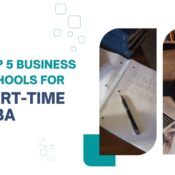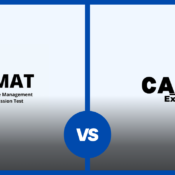
MBA Interview Tips (2/2)
Further to our last post MBA Interview Tips (1/2), we have compiled a list of the most frequently asked questions in the MBA interviews and have suggested a framework to keep in mind while answering the questions. These questions will typically form about 40-50% of your interview and aim to provide the interviewer a glimpse into your background, your experiences and help them determine your success in the MBA program. While most interviews tend to be blind (i.e., the interviewer wouldn’t have seen your application prior to the interview), increasingly more schools are gravitating towards reading you applications prior to the interview, thus it is strongly recommended to keep your interview stories in sync with your MBA application essays.
Remember: A cultural fit is extremely important to most MBA programs; thus, it is recommended to get familiar with their community and get to know various stakeholders within the MBA program to help tailor your responses and keep them school focused rather than generic.
- Tell me about yourself: It appears to be a simple question, doesn’t it? However, because it is so open-ended, many excellent candidates struggle with it and often go blank in final interviews. One shouldn’t underestimate the importance of this question since it typically tends to be the opening question for an interview and can set the tone and direction for the subsequent questions.
- You should use this question as an opportunity to talk about:
- Your background – touch upon where you come from, your family and maybe some unique instances in your early life
- Your professional life and career progression – touch upon your various stints and maybe highlight ½ key achievements from each stint. It is important to show career growth and you can specifically call out promotions, international assignments, leadership projects etc.
- Your hobbies and passion – it is important to briefly touch base on what you do outside work to show your overall picture. Any professional sports, volunteer activities, community participation or even something you enjoy doing should be talked about. There have been instances where interviewers have formed a strong connection with their interviewee purely because they share a similar passion.
- Include your personality characteristics, strengths, and interests in your experiences, ambitions, and conclude by talking about your interest in the school and the program
- Why are you interested in the program? One of the most frequent “Why?” questions whose response will be critical to showcase your research into the program. You are interviewing at one of the top schools in the world, after all. Instead of spending too much time on the institution’s background and reputation, pay attention to the relevant factors that make this school a good fit for you and your future aspirations. The admissions committee is interested in learning what appealed to you about their community and their culture. Your response would need to be tailored for the school and should focus on specific offerings that make the school distinct and your top choice. Remember generic responses and reference to rankings is not something that will go down well with your interviewer; hence you should try to avoid them as much as possible. Focus on how the programme aligns with your objectives and interests and why you would choose it above any other program. Remember that sincerity and authenticity are essential.
- What are your short term and long-term goals? Since the recruitment happens to be a core focus of all MBA programs, the interviewer will ask you for your post MBA plans and your course of action in case you can’t pursue them due to some external factors. Sort your objectives into “short-term” and “long-term” categories to start. Describe your goals for each, why you value them, how you plan to achieve them, and how your current employment and educational choices will help you do so. After establishing it, go over how your short-term objectives will aid in the achievement of your long-term objective. Make your goals explicit.
- Tell me about an instance when you showed leadership? Because MBA programs are as much about communication and motivation as they are about acquiring new skills, leadership is one of the top-ranked characteristics evaluated in behavioural interviews (just behind “teamwork”). Talk about specific instances where you overcame a hurdle or led a team. Explain a time when you show strong leadership in a professional context and how you helped a group of people achieve a goal. The more recent the instance, the more impact it will leave with your interviewer, examples from over 2 years in the past should be typically avoided since they don’t show your current character. While these responses should typically be professional, one can also talk about personal experiences which are important to you such as organising an important event for your team or business, volunteering for a cause that you believe in, taking up leadership in sports etc. Think about that very moment when you set an example for the others to follow.
These are some of the common questions that are asked in MBA interviews. Practice a couple of mocks before the final interview to get a familiarize yourself with the format and try to keep your responses under 3min.



